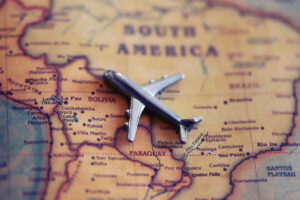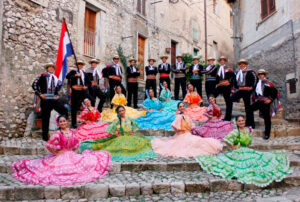Paraguay is increasingly attracting attention from those seeking a more affordable lifestyle and investment opportunities. With its low cost of living, thriving economy, and political stability, Paraguay offers a compelling alternative to many developed nations.
Affordable Housing
 One of the most significant cost-saving factors in Paraguay is housing. Real estate prices are generally much lower than in other developed countries, especially in rural areas and smaller cities. This allows for more spacious living arrangements at a fraction of the cost. Property taxes, rental fees and associated utilities are also considerably lower.
One of the most significant cost-saving factors in Paraguay is housing. Real estate prices are generally much lower than in other developed countries, especially in rural areas and smaller cities. This allows for more spacious living arrangements at a fraction of the cost. Property taxes, rental fees and associated utilities are also considerably lower.
Apartments, condominiums and homes are available for rent at a wide range of price points from USD $300-$1200+ per month in the capital city of Asunción.
Prices vary depending on neighborhood, location, amenities and proximity to popular shopping areas like Shopping del Sol, Paseo la Galeria and Shopping Mariscal.
For those on tight budgets, it is not uncommon to find an average-sized apartment with 1-2 bedrooms for under $500 per month in other neighborhoods farther away from the trendy areas.
Budget-Friendly Food & Groceries
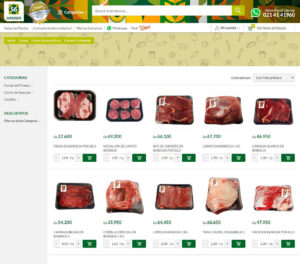 Food and groceries are another area where Paraguay offers significant savings. Fresh produce, meats, and other staples are often more affordable than in countries like the United States. Local markets and street vendors provide a variety of options at competitive prices.
Food and groceries are another area where Paraguay offers significant savings. Fresh produce, meats, and other staples are often more affordable than in countries like the United States. Local markets and street vendors provide a variety of options at competitive prices.
For example, as of the date of this article — a popular cut of beef such as ‘Picanha’ or ‘Top Sirloin Cap’ costs $10.39/lb in a popular US market [HEB] — whereas the same cut of meat in a popular local supermarket chain in Paraguay [Superseis] costs only USD $4.07/lb ($8.96/kg)
Filet Mignon? USD $4.25/lb ($9.35/kg)
Moreover, dining out can also be a budget-friendly experience, with many restaurants offering delicious and affordable meals. Expect to pay approximately USD $7-$15 per person for average sit-down meals and USD $20-$30+ for high-end, four-star steakhouse dining experiences.
Overall, groceries are generally 10%-40% cheaper than their counterparts in top-tier developed countries.
Lastly, it is important to note that Paraguay is a very meat-centric country. Due to its status as a major beef exporter (domestic consumption is approx 25% of annual beef production), meat prices are consistently low resulting in meat being a staple in modern culinary culture. Nearly every home has an outdoor grill and grilling meat over hot coals is a common pastime.
Utilities
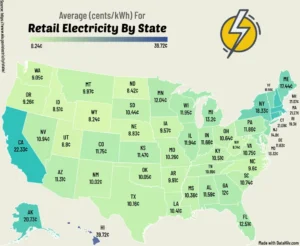 Utilities, such as electricity, water, and internet, are generally less expensive in Paraguay compared to developed countries like the United States.
Utilities, such as electricity, water, and internet, are generally less expensive in Paraguay compared to developed countries like the United States.
As of June 2024, the average price for electricity in the United States is 12.36¢ per kilowatt-hour with some urban areas and heavily-regulated states being substantially higher.
In contrast, due to Paraguay’s significantly lower generation costs thanks to its access to 100% hydroelectric power, the current cost of electricity in Paraguay is 5.2¢ per kWh (USD).
Water rates are generally inexpensive and for those who are looking for more rural options, drilling a water well is easy substantially less expensive than most other parts of the world.
Internet is widely available and fiber-optic service around Asunción is inexpensive with plans from ranging from 200-400Mbps down/30-50Mbps up averaging USD $19-$34 per month. Popular satellite-based internet service Starlink has also begun to offer service within Paraguay with plans ranging from USD $37-$45 per month + initial equipment cost USD ~$350.
Transportation
 Getting around in Paraguay is easy and relatively inexpensive. Buses and minibuses are common modes of transportation, and fares are typically low. Approximately 40% of households in Paraguay have at least one vehicle and motorcycles are common.
Getting around in Paraguay is easy and relatively inexpensive. Buses and minibuses are common modes of transportation, and fares are typically low. Approximately 40% of households in Paraguay have at least one vehicle and motorcycles are common.
Rideshare companies Uber and Bolt are both ubiquitous within the country and are similarly inexpensive. Rides start at USD $1.50 and average USD $5-$10 per trip across town (Asunción) and USD $20-$25 to the outskirts of the city (30+ miles away).
Rental vehicles are available both at the airport in Asunción and around the city but have been observed to be similarly priced or even more expensive than in developed countries. Common international brands like Hertz/Thrify, Alamo/National and SIXT all have rental operations in Paraguay.
Fuel prices are comparable to more developed countries as Paraguay, being a small country, has only one refinery which is owned and operated by the state-owned oil company Petróleos Paraguayos – aka ‘Petropar’.
Paraguay currently has no domestic oil production capabilities and imports all crude oil for domestic consumption.
Healthcare Options
Healthcare in Paraguay is a mix of public and private systems. Generally speaking, medical care overall in Paraguay is less expensive than developed countries – and in some cases, significantly less expensive.
Public (free) healthcare is available to all citizens and legal residents, but as with all public healthcare systems – it has its limitations.
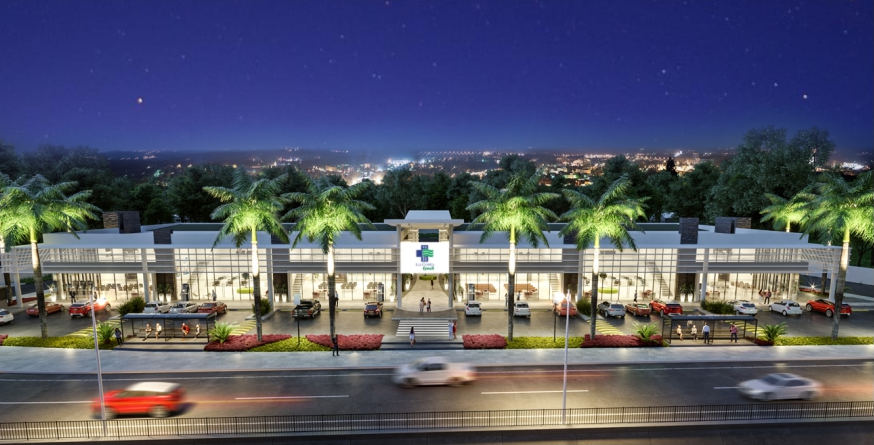
Private healthcare and medical insurance in Paraguay is offered through several companies with a range of coverage levels.
As an example, an expat family recently (as of July 2024) obtained full coverage for a family of four (2 adults + 2 children) at the “gold” coverage level available for USD $150/month. No deductibles, no co-pays.
Routine care, medical emergencies (including transport by ambulance), surgeries, testing – is all included in the private healthcare insurance plan with the only exclusion being elective procedures.
Note: Paraguay is still a developing country and some facilities and equipment may not look as modern as what may be seen in North America and Europe (unless visiting the top tier facilities in Asunción).
Paraguay’s Growing Economy
Paraguay has experienced significant economic growth in recent years, with a focus on agriculture, livestock, and industry. The country has also maintained political stability, making it a favorable destination for expats to invest and and live.
Driven by robust agricultural exports, particularly soybeans and beef, the country has witnessed a steady increase in GDP and a decline in poverty rates. Moreover, Paraguay’s strategic location, bordering Brazil and Argentina, has attracted foreign investment in sectors such as energy and infrastructure. While challenges such as income inequality and corruption persist, Paraguay’s economic growth trajectory positions it as a promising emerging market in South America.
As a result, real estate and retail investment has blossomed leading to several large modern retail shopping areas being constructed in the last decade or so, allowing travelers from around the globe to enjoy retail and dining experiences that rival offerings around North America and Europe.
Conclusion
Paraguay offers a compelling combination of affordability, economic growth, and political stability. Whether you’re considering retirement, starting a business, or simply exploring a new adventure, Paraguay may be the perfect choice for you.

